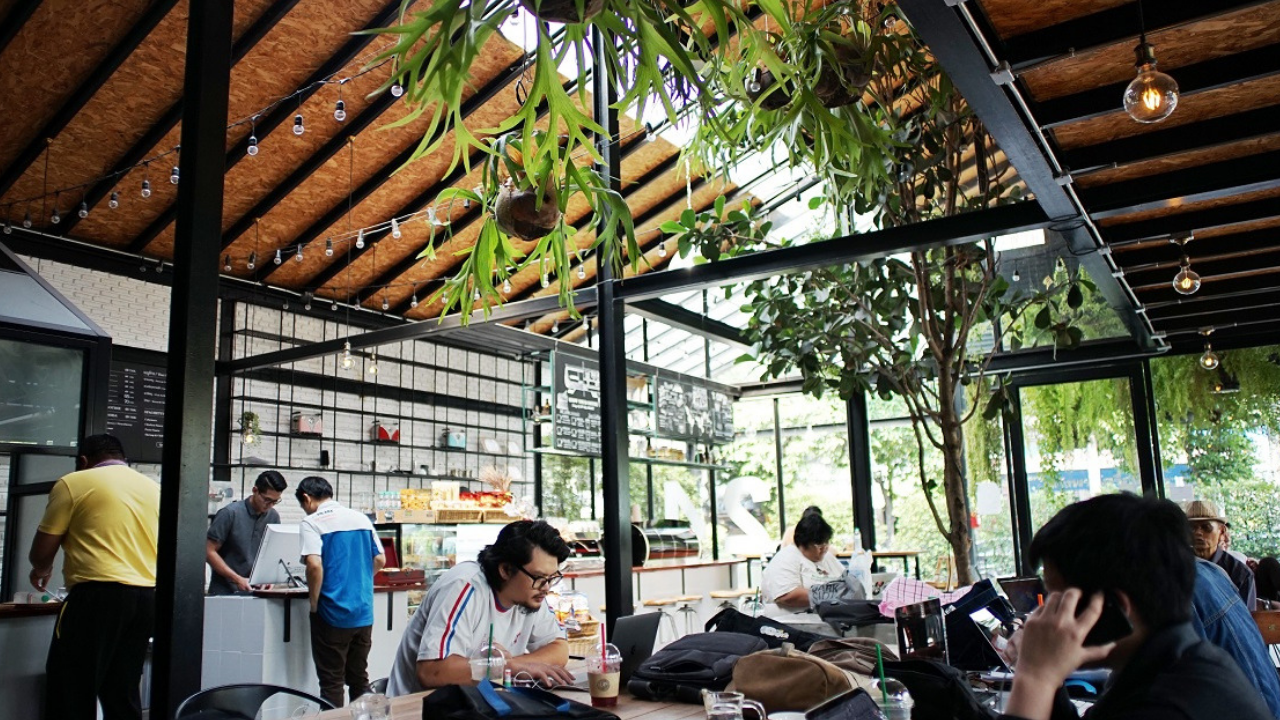The days of the rising free-spirited digital nomad is slowly diminishing, with a Collier’s study revealing that freelancers using coworking spaces dropped by 15% over three years ending in 2017.
Despite this, the flexible space market has rapidly grown in the APAC over the past five years due to big names from both supply and demand ends.
Large property owners are partnering up with coworking operators to launch their own brands, while some governments are noting the benefits and tagging along for the ride. Many multinationals are taking advantage of coworking’s expansion by sending departments to their off-site locations situated within flexible offices.
It is no surprise that JLL Research found that flexible space stock in the APAC had an annual growth from 2014 to 2017 of 35.7%.
Thailand itself has grown from four to 132 spaces in just five years and JLL predicts that coworking spaces will take up 30% of corporate commercial property in the APAC by 2030.
Coworking spaces were once synonymous with ping pong tables and free-flowing beer, but now operators are attempting to pivot this design into something more attractive to corporate members. Spaces are now purposefully designed to encourage networking, rather than letting it happen naturally.
Hubba, Thailand’s first coworking space has four locations in Bangkok that cater to different fields, including tech startups and craftsmen, and offers seminars to aid companies in management, design, and more.
Another Bangkok-based operator, Spaces, focuses on style and flexibility and won Best Coworking Space Development at the Property Guru Thailand Property Awards in 2018.
Hong Kong-based space provider The Executive Centre (TEC) was founded in 1994 and was one of the first of its kind. TEC now has 20,000 members across 30 markets and are expecting a 30% annual growth from 2018.
Now, over 67% of clients in Hong Kong are multinationals including Apple, Facebook, and Twitter.
“Prior to the financial crisis, TEC interacted with multinationals only when they were opening an office in far-flung locations,” says Pebble Lee, global public relations manager.
Regardless of this massive growth, corporate culture may not mesh well with the typically non-hierarchical flexible office environment. JLL research says that large organizations highly value brand identity and that these concerns, along with IT infrastructure, need to be addressed.
This is why big operators act as builders, gatekeepers, event-planners, consultants, as well as providing IT departments.
Landlords are taking advantage of this market. Swire, a conglomerate business group, has created its own brand called Blueprint and signed deals with WeWork and The Great Room in order to offer a diverse portfolio that includes flexible office space.
Some hotels have also delved into the market by offering coworking offices within their locations. For example, Shangri-La hotel Colombo recently opened a new space called Co-nnect that includes private offices, meeting rooms, and more.
The global expansion of coworking spaces has brought the market full circle thanks to its corporatization.
















